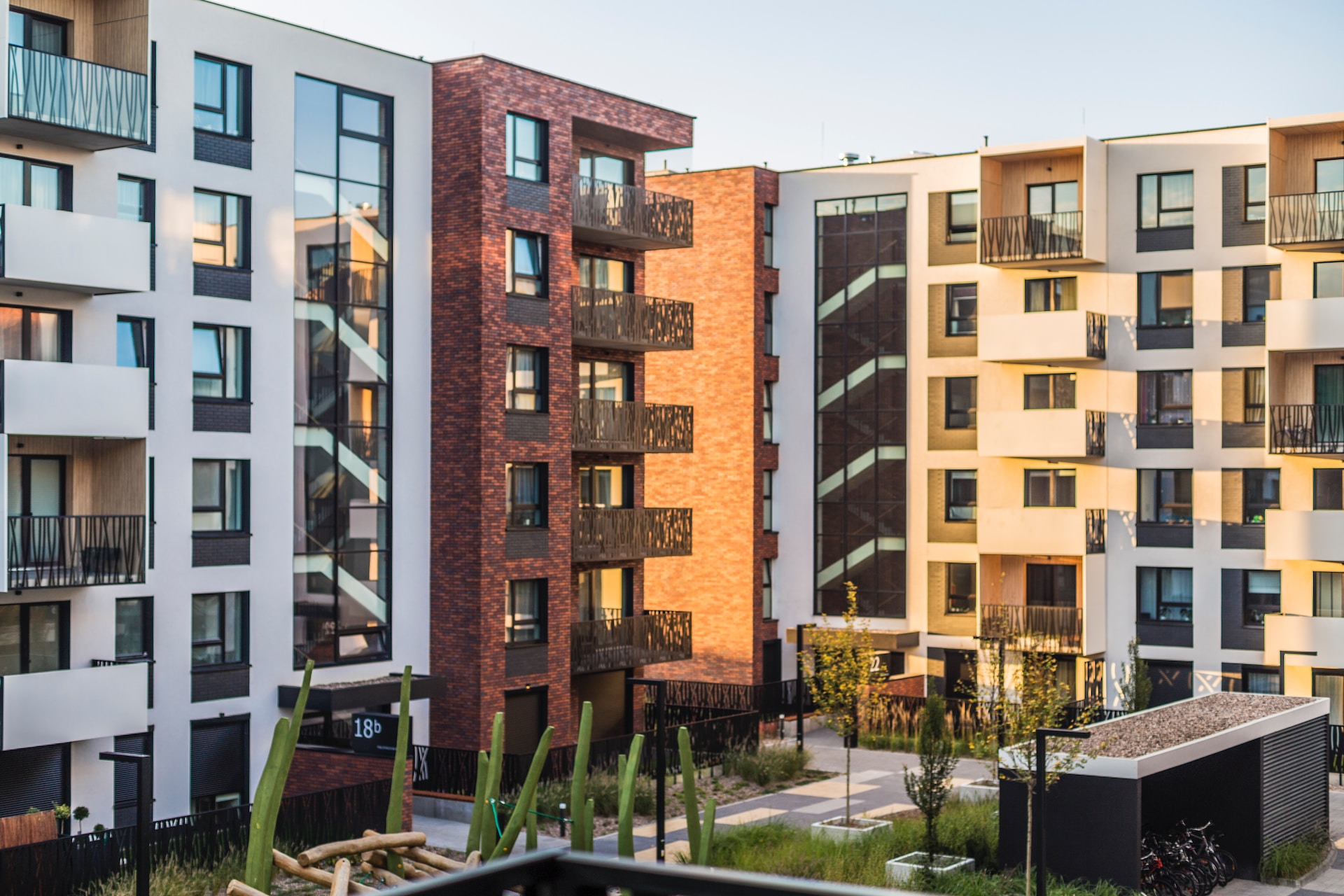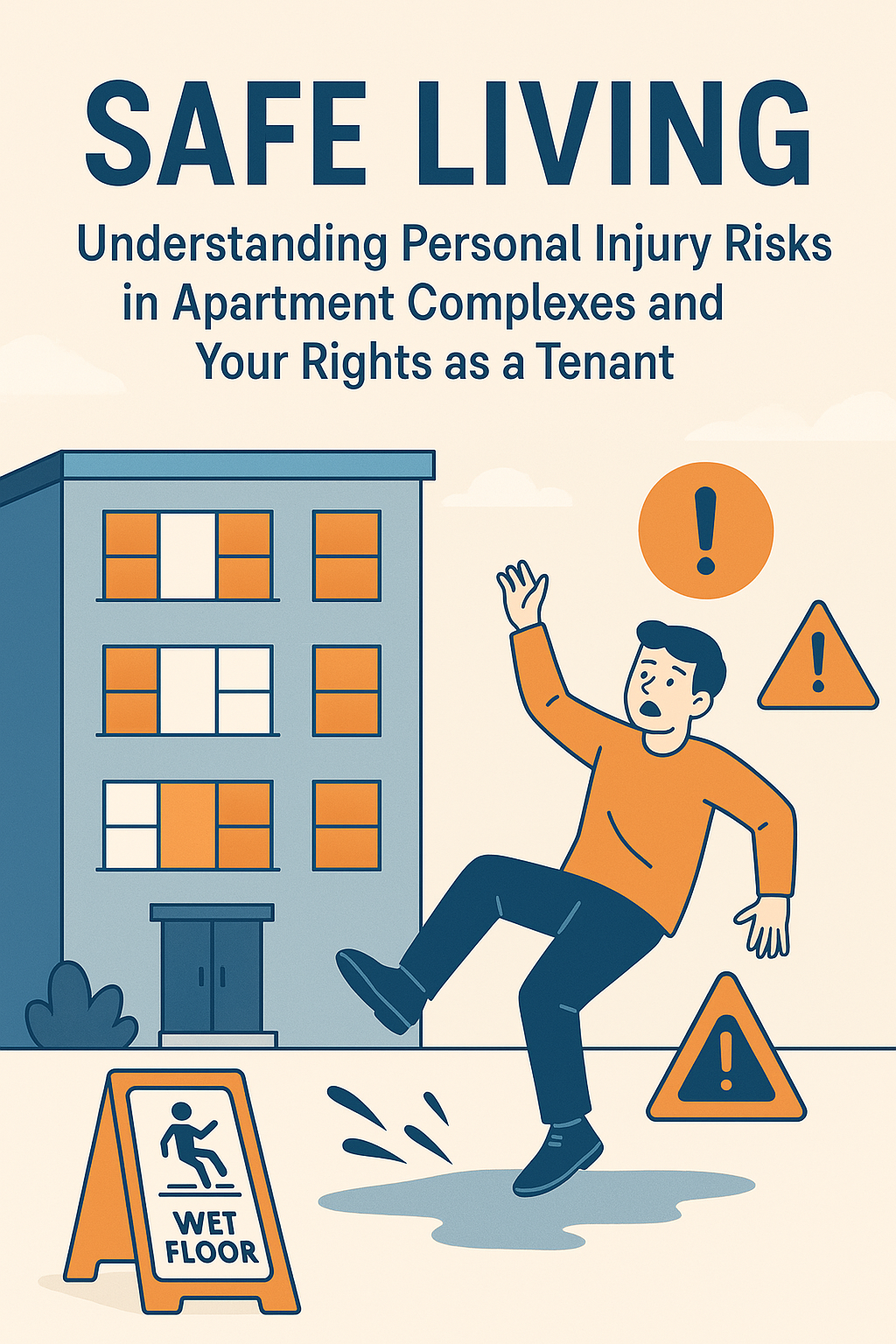Safe Living: Understanding Personal Injury Risks in Apartment Complexes and Your Rights as a Tenant

Living in an apartment complex offers convenience and a sense of community, but it also presents unique risks that can lead to personal injuries. From slips and falls in common areas to accidents in recreational facilities, tenants face various hazards that can result in serious consequences. Understanding these risks and knowing your rights as a tenant is essential for ensuring safety and seeking justice if an injury occurs. This blog explores the common causes of personal injuries in apartment complexes, the legal responsibilities of landlords, and the proactive steps tenants can take to protect themselves.
Personal injury incidents in apartment complexes can have significant physical, emotional, and financial repercussions. By being informed about potential dangers and knowing how to address them, tenants can create a safer living environment for themselves and their neighbors. This blog aims to empower individuals with the knowledge they need to navigate the complexities of apartment living while prioritizing safety and well-being.
Common Causes of Personal Injuries in Apartments
According to www.accidentjusticepro.com, apartment complexes are bustling environments where multiple residents share common spaces, which can become hotspots for accidents. Common causes of personal injuries in these settings include slips, trips, and falls due to poorly maintained walkways, inadequate lighting, or unaddressed hazards like loose railings. For instance, a tenant may suffer a fall in a poorly lit stairwell, or trip over a broken pavement slab outside the building, leading to serious injuries.
Additionally, shared facilities such as gyms, pools, and playgrounds can pose significant risks. If equipment is not regularly inspected and maintained, it can become dangerous for residents. For example, a malfunctioning treadmill in the fitness center could result in severe injuries. By understanding these common causes of personal injury, tenants can remain vigilant and proactive in their living environments, helping to prevent accidents before they happen.
Landlord Responsibilities and Negligence
Landlords have a legal obligation to maintain safe living conditions for their tenants. This responsibility includes regularly inspecting and repairing common areas, ensuring proper lighting, and addressing any potential hazards promptly. When a landlord fails to uphold these responsibilities, they may be considered negligent, making them liable for any injuries that occur as a result. For instance, if a tenant suffers an injury due to a broken handrail that the landlord knew about but failed to fix, the landlord could be held responsible.
Understanding the legal responsibilities of landlords is crucial for tenants, as it empowers them to advocate for their rights and seek compensation if necessary. Awareness of these responsibilities encourages tenants to report safety concerns, fostering a safer living environment for everyone. When tenants are informed about their rights, they are more likely to hold landlords accountable for maintaining a safe property.
Documenting Injuries and Reporting Incidents
If a personal injury occurs in an apartment complex, tenants should take immediate action to document the incident. Gathering evidence such as photographs of the scene, obtaining witness statements, and seeking medical attention if necessary is crucial. Proper documentation helps build a strong case, especially if legal action is required. For example, documenting a fall caused by a loose tile in the lobby can provide essential evidence for a potential claim.
Additionally, tenants should report the incident to the property management or landlord promptly. This report should include details about the injury, the circumstances surrounding it, and any potential hazards that contributed to the accident. By formally notifying the landlord, tenants create a record of the incident, which can be vital for any future claims. This proactive approach not only assists the injured tenant but also alerts the landlord to potential issues that need addressing for the safety of all residents.
Understanding Your Rights as a Tenant
Tenants have specific rights concerning their safety and well-being in an apartment complex. Understanding these rights is essential for advocating for oneself and ensuring a safe living environment. For instance, tenants have the right to a habitable living space, which includes safe common areas and functioning amenities. If a landlord fails to provide these conditions, tenants can take action by reporting issues and, if necessary, pursuing legal recourse.
Moreover, tenants have the right to report safety hazards without fear of retaliation. It is illegal for landlords to discriminate against tenants who exercise their rights, including filing complaints or seeking repairs. Knowing these rights empowers tenants to speak up about unsafe conditions, ultimately leading to improved safety for themselves and their neighbors. When tenants feel confident in their rights, they are more likely to advocate for necessary changes that enhance the overall safety of the apartment complex.
Seeking Legal Recourse for Personal Injuries
In cases where a personal injury occurs due to a landlord's negligence, tenants may seek legal recourse to obtain compensation for their injuries. This process typically involves filing a personal injury claim, which requires proving that the landlord's negligence directly caused the injury. Working with a qualified personal injury attorney can significantly enhance a tenant's chances of successfully navigating this process. A knowledgeable attorney can help tenants gather the necessary evidence, negotiate with insurance companies, and represent them in court if needed.

Additionally, legal professionals can provide valuable guidance on the potential outcomes of a case, ensuring that tenants make informed decisions throughout the process. Understanding the options available for seeking compensation can alleviate some of the stress associated with personal injuries and empower tenants to pursue justice. By being proactive and seeking legal assistance, tenants can protect their rights and work toward obtaining the compensation they deserve for their injuries.
Conclusion
While apartment living offers many advantages, it is essential to remain vigilant about safety and personal injury risks. By understanding common causes of injuries, landlord responsibilities, and tenants' rights, individuals can create a safer living environment and advocate for themselves effectively. Documenting incidents and knowing when to seek legal recourse are crucial steps in ensuring justice for personal injuries that occur in apartment complexes. Ultimately, fostering a culture of safety and accountability not only protects tenants but also enhances the overall quality of life within the community.
By being informed and proactive, tenants can enjoy their living spaces with peace of mind, knowing they have the knowledge and tools to address any challenges that may arise. Safe living is not just about having a place to call home; it's about ensuring that home is a secure and nurturing environment for everyone who resides there.
Published 4/4/25